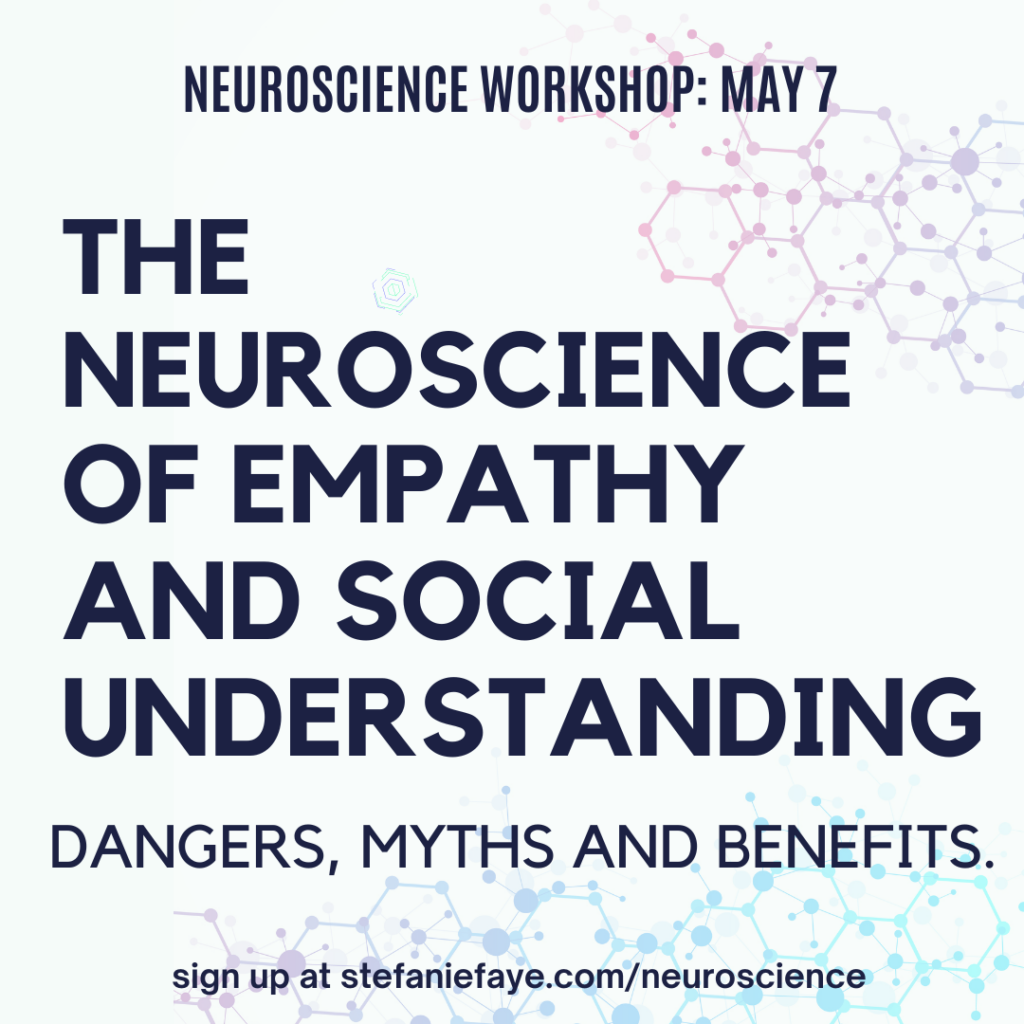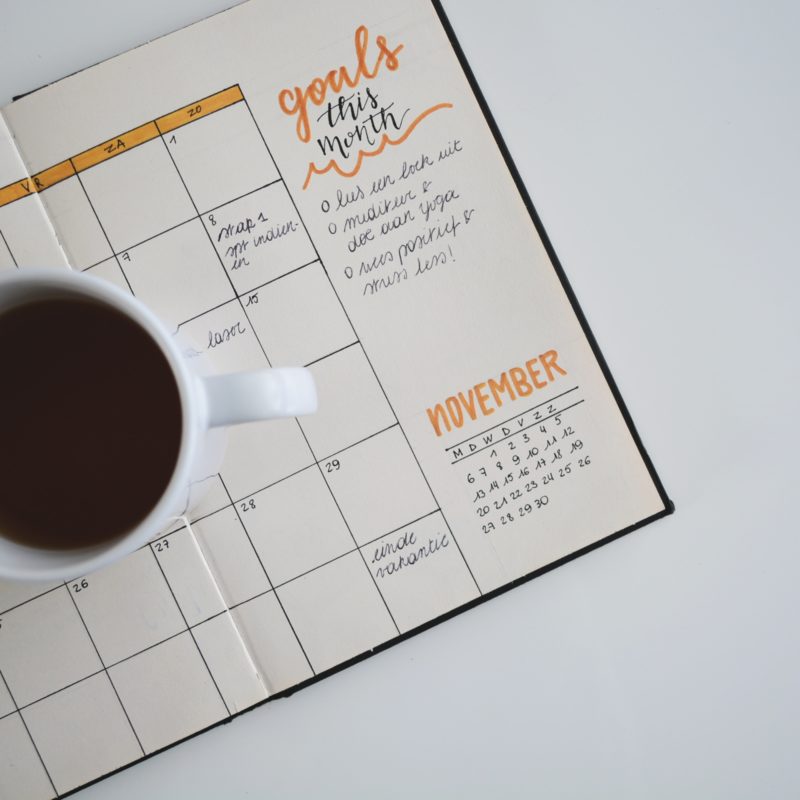“Emotions and the feelings are not a luxury, they are a means of communicating our states of mind to others. But they are also a way of guiding our own judgments and decisions. Emotions bring the body into the loop of reason.”
–Antonio R. Damasio, Descartes' Error: Emotion, Reason and the Human Brain
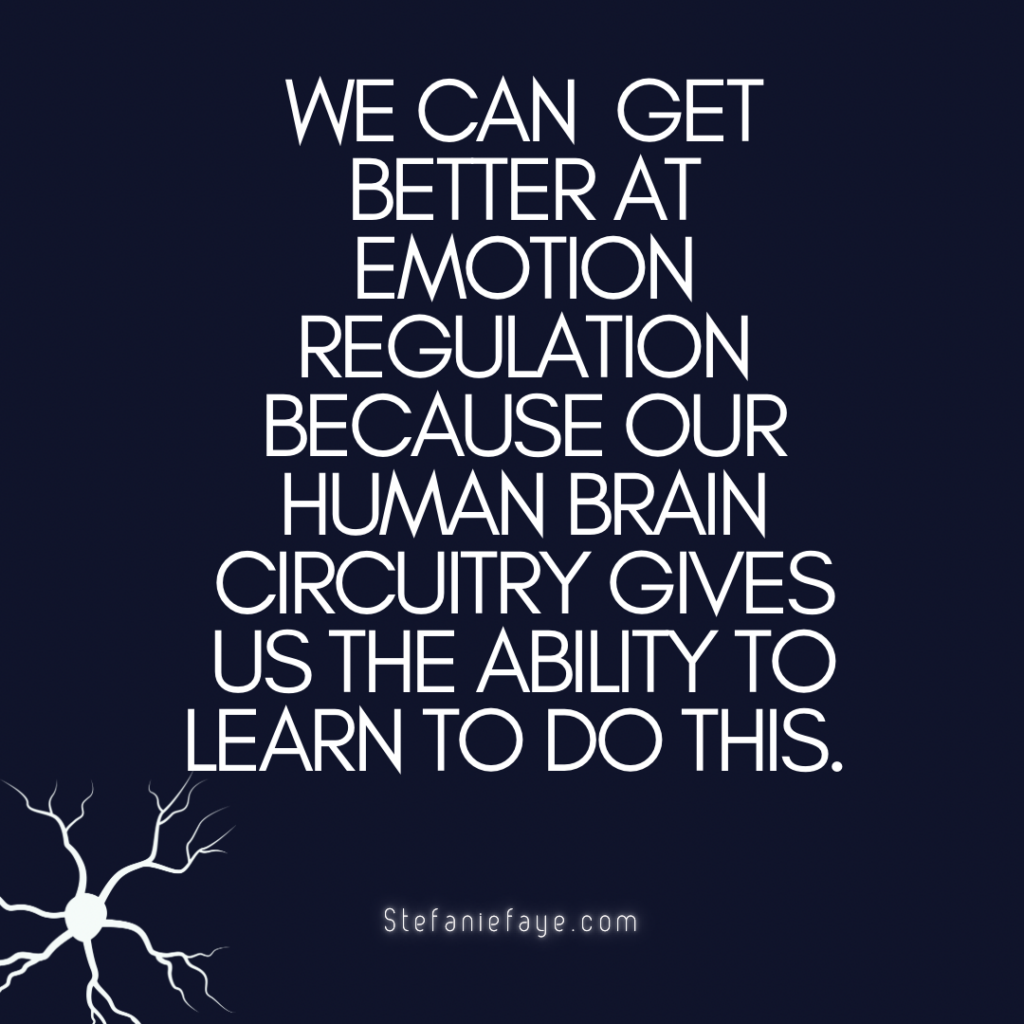
Every moment, every interaction we have with ourselves and others is an opportunity to master our nervous system and to help others regulate theirs.
We can do this because our human brain circuitry gives us the ability to LEARN to do this.
Every human on the planet is capable of learning how to self-regulate. However, it is important to note that human children are not born with the capacity to self-regulate. They must have attuned, responsive caregivers who nurture the child's brain development through co-regulation.
This means that because our earliest experiences and conditions are not always in our control, it can make it difficult for some people to learn how to regulate in adaptive ways. This means it is also challenging for a large portion of the planet to learn how to consciously self-regulate.
So whether we are dealing with young people, or adults -
there's a chance some of them did not have what they needed growing up in order to develop emotion regulation skills to their highest potential.
This is why we need self-regulation models.
Models are not more 'special' than anyone else. It's just they've managed to learn how to regulate themselves well enough that they are able to help others do it too.
But remember that learning of any kind - including emotion regulation - requires repetition.
This means that EVERY interaction you have with another human being is a moment of practice. Strangers, friends, family members, interactors on social media.
We can choose, moment-by-moment, to be a source of micro-movements, voice frequencies, breath patterns, and facial gestures that reflect a safe internal state that models for others what social-emotional mastery can look like in human form.
.
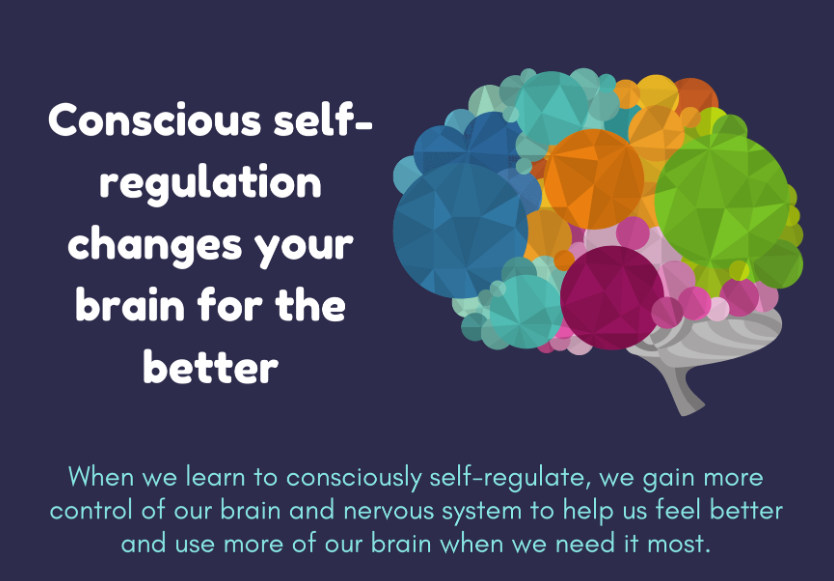
To become masters of our own nervous system, one of the first steps is to become a safe harbor to ourselves.
What is your self-talk? What do you say about yourself as you compare yourself others on social media... when you look in the mirror... when you lie in bed at night?
Here's the thing... All thoughts and inner dialogue are simply neural circuits sending electrochemical pulses. They are not the actual event. They are not solid. They are not 'reality'. They are fleeting electric firing patterns inside your brain.
And you - as a human - have the ability to inhibit certain firing patterns and activate other ones. It can be difficult and challenging, but not impossible.
Mastering our nervous system is therefore tied to Self-Regulation
...so we can create a reliable, internal steady and safe state within our own mind-body and model to others that this can be learned and achieved.
Our ability to self-regulate is tied to 6 Key Pillars:
I will cover 3 in this article, and the remaining 3 in the next articles:
1) Ability to co-regulate with others
This means we are able to seek out closeness, intimacy and psychological safety with others. This helps us get out of the trance of our own thoughts and narratives. It opens us up to other people’s experiences and perspectives, and also serves as a mirror for us to practice how to send signals using our voice, hands, face and body in ways that create feedback loops with others that are co-creative, restorative and safe. These are types of mammalian behaviors that are tied to oxytocinergic systems that help us achieve homeostasis through connection.
Social interactions also help us complexify our problem-solving and creative abilities by offering multiple unpredictable and unstable feedback loops that we must engage in moment-by-moment. These articles and videos provide ideas for how to get better at co-regulation
The nonnegotiable power of attachment and relationships
The neuroscience of attachment, emotion regulation and intimacy
2) Ability to have autonomy when we need it
This means we are able to have boundaries and are able to take a break from others in order to tune in to our own internal environment. This helps us get clarity about what feels truly good to us, what is important to us - without being influenced by others’ moods and the pressures they put on you to be a certain way for them.
Certain types of unavailable, misattuned or insensitive caregiving affect how we deal with a need for autonomy in adult relationships. (see my article and video on How to Have More Intimacy and Independence in Adult Relationships)
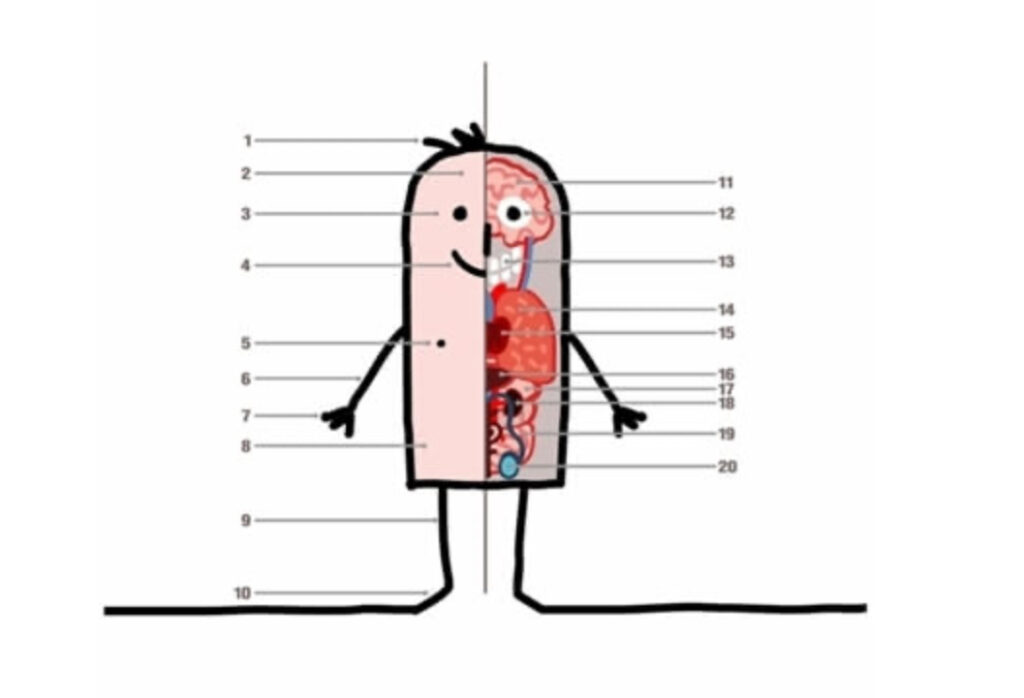
3) Ability to suppress and enhance various systems
If we are over-stimulated, over-thinking, if it feels like our mind is racing, or we can’t control our reactions to others, then suppression and inhibition is the key.
A racing mind - a mind that feels out-of-control, anxious, distressed is reflecting hyper-arousal and over-activity. Inhibitory and down-regulating abilities can be learned through meditation, attentional training, mindful breathing various types of cognitive training and mindfulness activities.
If we are feeling down, resigned, hopeless, disengaged, then initiation and up-regulation are key. We need to be able to enhance emotions, increase arousal, positive emotions and exploration when we need it, using sympathoexcitatory, dopaminergic circuits.
We can do this by engaging in movement, play, sports, social interaction, listening to fast-paced music (especially if there are loud base frequencies), punching pillows, hitting balls, and talking loudly. Anything that forces your breath to quicken and increases blood flow to skeletal muscles for limb movement and mobilization (to learn more, you can check out this article and video on the 9 tiers of nervous system responses.
We can do this by engaging in movement, play, sports, fun social interaction, listening to fast-paced music (especially if there are loud base frequencies), punching pillows, hitting balls, and talking loudly. Anything that forces your breath to quicken and increases blood flow to skeletal muscles for limb movement and mobilization (to learn more, you can check out this article and video on the 9 tiers of nervous system responses.
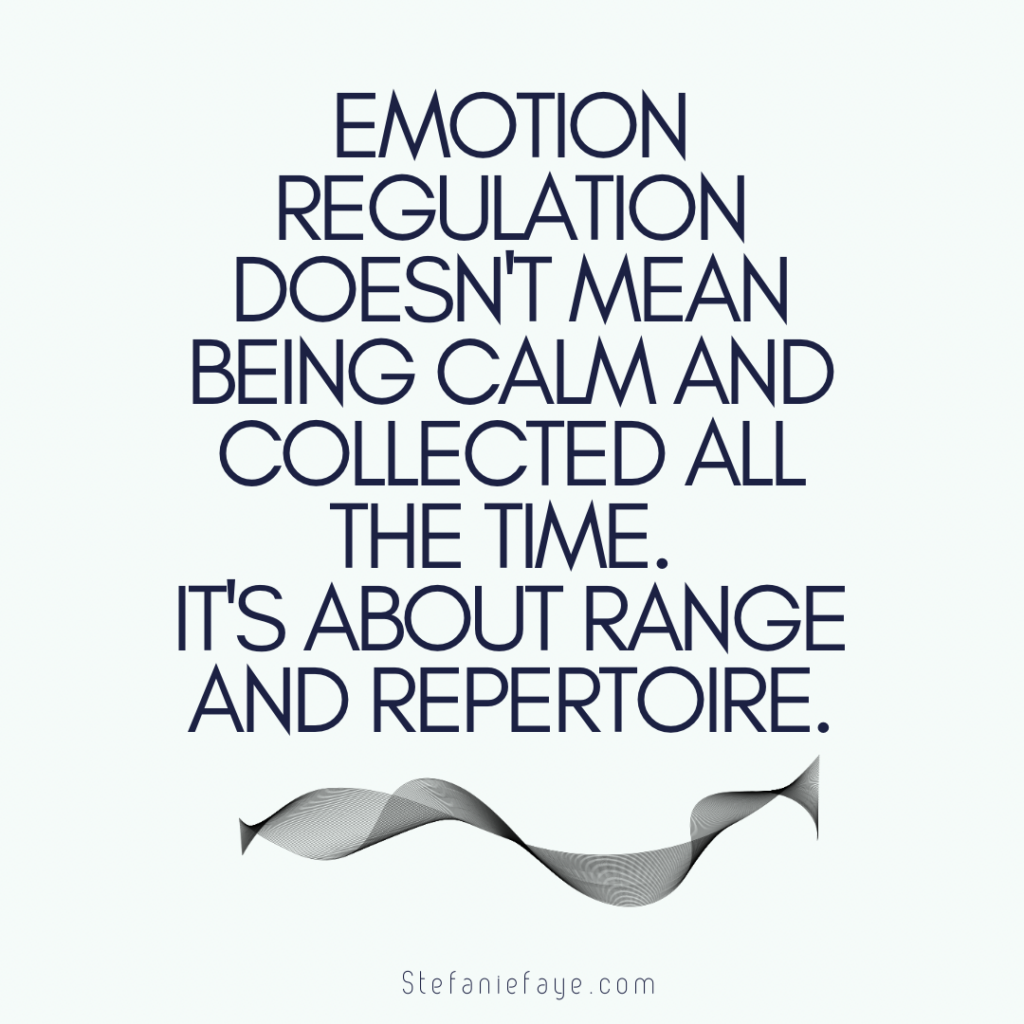
Emotion regulation doesn't mean being calm and collected all the time.
It's about range and repertoire, and an ability to intentionally shift into a state we prefer. A state that 'feels better'. Feeling better is always relative - if we feel isolated alone, we may want to feel more connected with others, with ourself, or with life in general. If we feel over-stimulated, we may want to shift into a calmer state.
Emotion regulation is one of the most important skills we can learn in this lifetime. Our human brain gives us the capacity to learn how to do it better, even if we did not have models of this growing up. It's a continuous process. The links in this article are meant to give you additional resources for learning about emotion regulation.
In the next article, we'll talk about 3 more critical factors for emotion regulation and mastering our nervous system!
References:
Allan Schore, affect regulation and the origins of the self
Bonnano and colleagues: regulatory flexibility
Antonio Damasio, the importance of feeling and Descartes Error
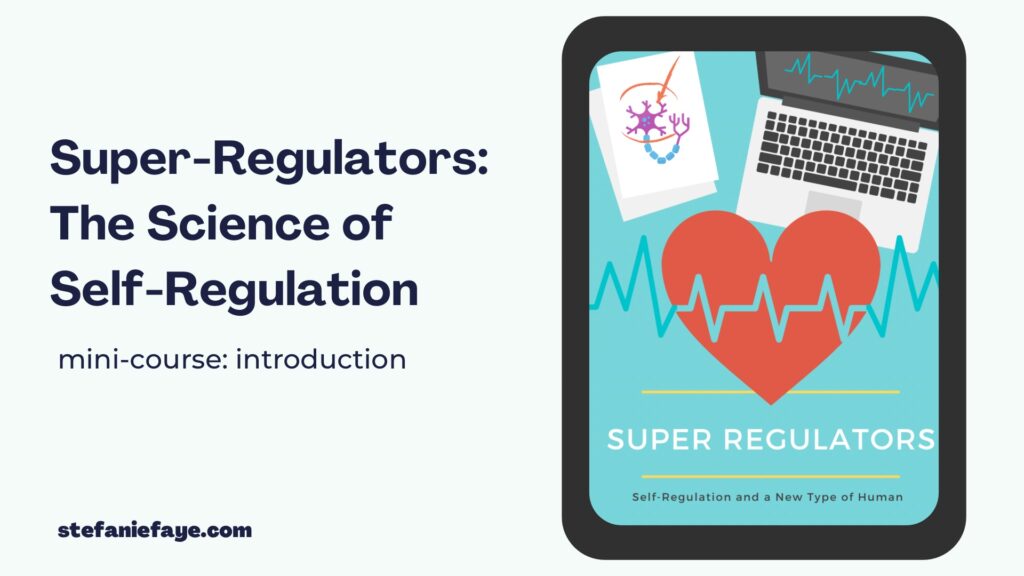
Guess what? Self regulation, regulation and ‘super-regulation’ are topics that are a deep passion of mine and that I think have the capacity to change society for the better. So.. I decided to create a super regulators mini course! It includes a few short videos, transcripts, the audio version of my super regulators mini book, and of course, the digital version of the super regulators mini book plus a few extra resources. It’s almost ready, so stay tuned!
This Tuesday will be one of the final seminars I will be running.
The topic is on empathy: myths, dangerous and benefits. This is a topic that is near and deer to my heart, and was a focus of my graduate thesis at NYU.
These seminars will not happen again so if you’d like a chance to join a very cool group of people and asked me specific questions, here’s your chance!
Tuesday, May 7, 7:30-8:45 PM MST
$55
